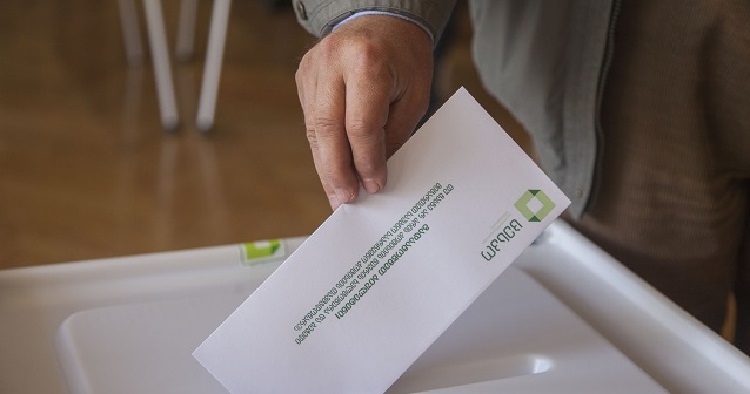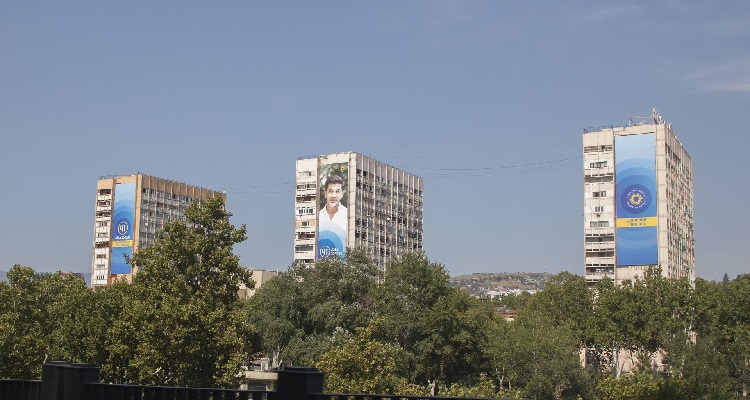OSCE/ODIHR interim election report: political landscape ‘highly polarized’

Georgia will elect mayors and city council members on October 2. Photo: Nino Alavidze/Agenda.ge
The OSCE Office for Democratic Institutions and Human Rights (ODIHR) says the political landscape is ‘highly polarized’ in Georgia ahead of the upcoming October 2 local self-government elections.
The OSCE/ODIHR election observation mission (EOM) published its interim report on September 17.
The report says that that pre-election environment is ‘marked by deep polarization between governing and opposition parties, many of the latter describing these local elections as a national referendum and a roadmap to snap parliamentary elections’.
Most opposition parties met by the ODIHR EOM state that the political environment unduly favours the ruling party, including in access to campaign donations, and expressed concerns that the recent launch of a number of social and economic projects by the government further compounds the issue”, the report reads.
While the law prohibits launching of the social and economic projects after the call of the elections, the government has claimed the projects were launched before the call”, it also notes.
However, the ODIHR EOM interlocutors in almost all regions ‘have alleged that state and local officials, as well as ruling party agents, are engaged in vote buying and pressuring opposition party supporters’.
The campaign is prominent particularly in print and online media, and social networks. Many parties reduced door-to-door and in-person campaign activities given widespread COVID-19 related concerns, and no large-scale campaign events were held to date, although permitted.
 Election billboard of ruling party candidate Kakha Kaladze. Photo: Nino Alavidze/Agenda.ge
Election billboard of ruling party candidate Kakha Kaladze. Photo: Nino Alavidze/Agenda.ge
Moreover, billboards and posters ‘are not widely used by the parties, with the exception of the ruling party’. Most candidates met by ODIHR EOM did not raise concerns about their ability to campaign freely, including in minority languages.
Saying that the media environment ‘is diverse but strongly dependent on business or political interests’, the report notes that it ‘largely mirrors the polarisation between governing and opposition parties’.
Media viability remains an ongoing challenge, due to the relatively small size of the audience and the limited advertising market, amplified by the financial consequences of the COVID-19 pandemic”, ODIHR EOM says.
Some ODIHR EOM interlocutors raised concerns about a deteriorating media environment, cases of alleged intimidation and violence against journalists. The Election Code requires broadcasters to provide fair and impartial coverage of the campaign”, it further adds noting that editorial policies ‘are often affected by partisan alignments and agendas’.
Based on the report, to date the campaign has been ‘dominated by mutual accusations of disinformation and election violations on one side, and of focusing on post-election protests on the other’.
About the OSCE/ODIHR mission:
OSCE/ODIHR deployed an election observation mission on August 26. Chaired by Ambassador Albert Jonsson, the mission consists of a 12-member core team based in Tbilisi and 30 long term observers deployed throughout the country from September 4.
Mission members are drawn from 21 OSCE participating States. ODIHR has requested participating states to second 350 short-term observers to observe election day proceedings. ODIHR has observed 16 previous elections in Georgia.
About the October 2 elections:
A total of 42 political parties and 76 initiative groups are running in these elections, including 241 mayoral candidates, 2,845 majoritarian candidates in 664 single-member constituencies and 773 proportional lists.
Over 3.4 million voters will elect mayors and members of the local councils through a mixed system of majoritarian seats and proportional lists in 64 municipalities.
Majoritarian candidates must obtain over 40 per cent of the valid votes cast, and candidates for mayor over 50 per cent, otherwise a second round is held within four weeks.
 Tweet
Tweet  Share
Share